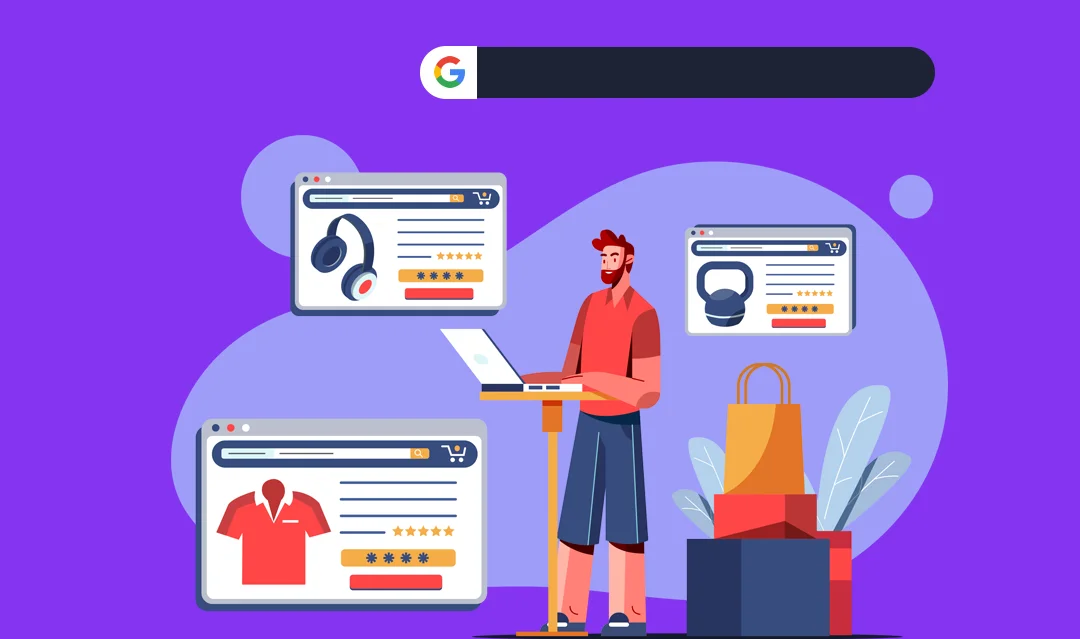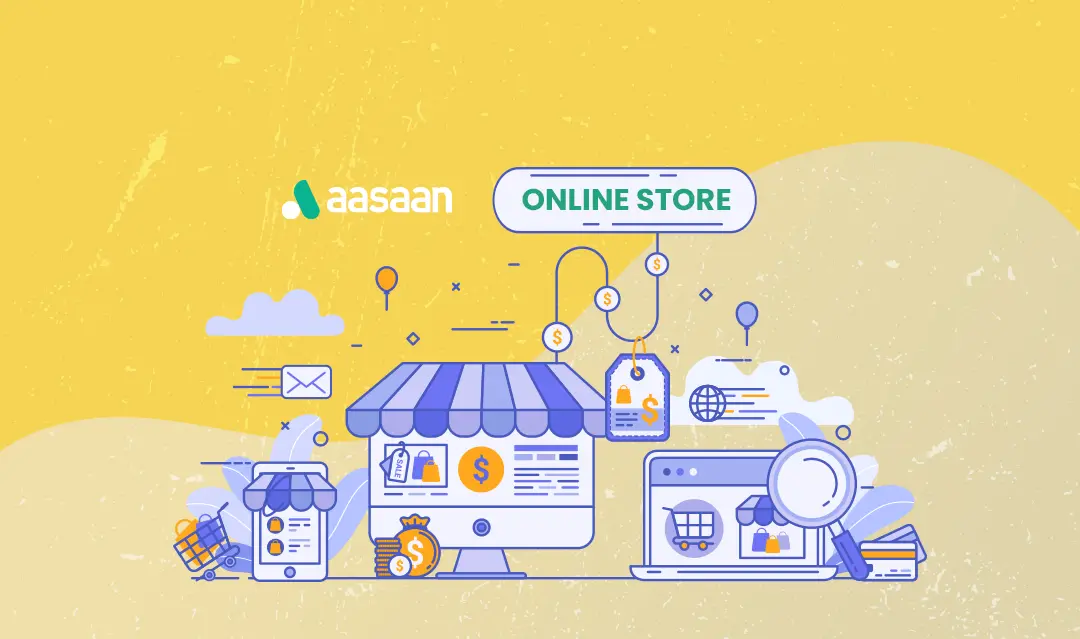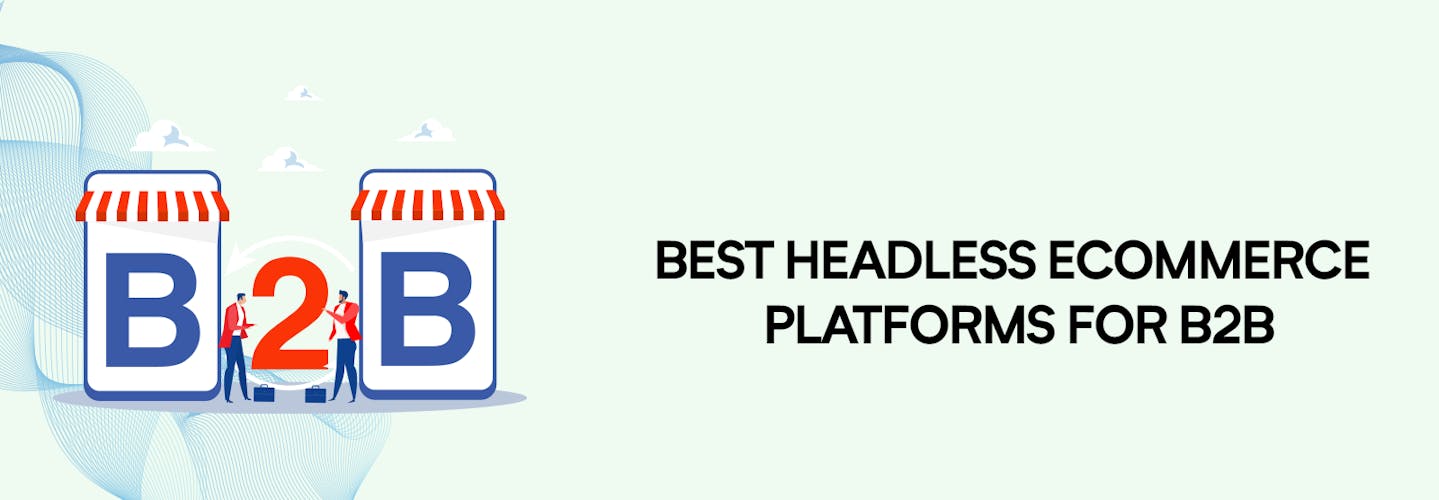
6 Best Headless Ecommerce Platforms for B2B in 2025
In the dynamic world of e-commerce, there’s a new player in town that’s redefining the rules of the game: Headless B2B E-commerce.
This cutting-edge approach is turning traditional methods on their head, streamlining operations, and offering unprecedented flexibility.
But what does it mean for your business?
How can it revolutionize the way you connect with your customers?
And why should you consider making the leap into this headless future?
Imagine a world where you’re not bound by the constraints of pre-packaged solutions, where you can customize your e-commerce experience to perfectly match the unique needs of your business.
This is not a distant future, but a reality that many B2B enterprises are already embracing.
But don’t just take our word for it.
Let’s dive into the world of headless e-commerce together, explore its potential, and find out how it can become a game-changer for your business.
Are you ready to step into the future of B2B commerce?
Definition of Headless Ecommerce
Headless ecommerce is a modern approach to building ecommerce platforms where the front-end (the head) is decoupled from the back-end.
This means that the user interface is separate from the business logic and functionality, allowing developers to work on each part independently.
It’s like having a mannequin (the back-end) that can wear any outfit (the front-end) you choose.
Importance of Headless Ecommerce in 2025-25
As we move further into the digital age, consumer expectations are changing. They demand seamless, personalized experiences across all channels.
Traditional ecommerce platforms, with their rigid, monolithic structures, struggle to keep up with these demands.
This is where headless ecommerce shines. By separating the front-end from the back-end, businesses can deliver a consistent, tailored user experience across all touchpoints, whether it’s a website, mobile app, or even a smartwatch.

Features of Headless Ecommerce Platforms
1. API First Approach
Headless ecommerce platforms are built with an API-first approach. This means that they are designed to interact with other software through APIs (Application Programming Interfaces).
This makes it easy to integrate with other systems, such as CRM, ERP, or PIM, enabling a seamless flow of data across your business.
2. Omnichannel Experience
One of the key benefits of headless ecommerce is the ability to provide an omnichannel experience.
Since the front-end is decoupled from the back-end, you can deliver a consistent shopping experience across all channels.
Whether your customers are shopping online from a desktop or mobile device, or in a brick-and-mortar store, they will receive the same high-quality user experience.
3. Customization
With headless ecommerce, the possibilities for customization are endless. Since the front-end is separate from the back-end, developers can use any technology stack they prefer to create a unique, engaging user interface.
This allows businesses to differentiate themselves from their competitors and meet the specific needs of their customers.
4. Support
Most headless ecommerce platforms offer robust support to help businesses make the most of their investment.
This can include technical support to help with any issues that arise, as well as resources and documentation to help businesses understand how to use the platform effectively.
Why B2b Business Should Use A Headless Ecommerce Platform ?
B2B businesses should consider using a headless ecommerce platform for several reasons.
Firstly, a headless architecture enables seamless integration with other B2B systems, such as CRM or ERP, allowing for efficient data flow and streamlined operations.
Secondly, headless platforms offer advanced B2B features like custom pricing, complex product catalogs, and multiple buyer roles, catering specifically to B2B needs.
Additionally, the flexibility and scalability of headless architecture enable businesses to adapt and grow, providing a personalized and consistent user experience across multiple channels.
Ultimately, a headless ecommerce platform empowers B2B businesses to stay competitive and meet the evolving demands of their customers.
6 Best Headless Ecommerce Platforms for B2B
1. Aasaan App
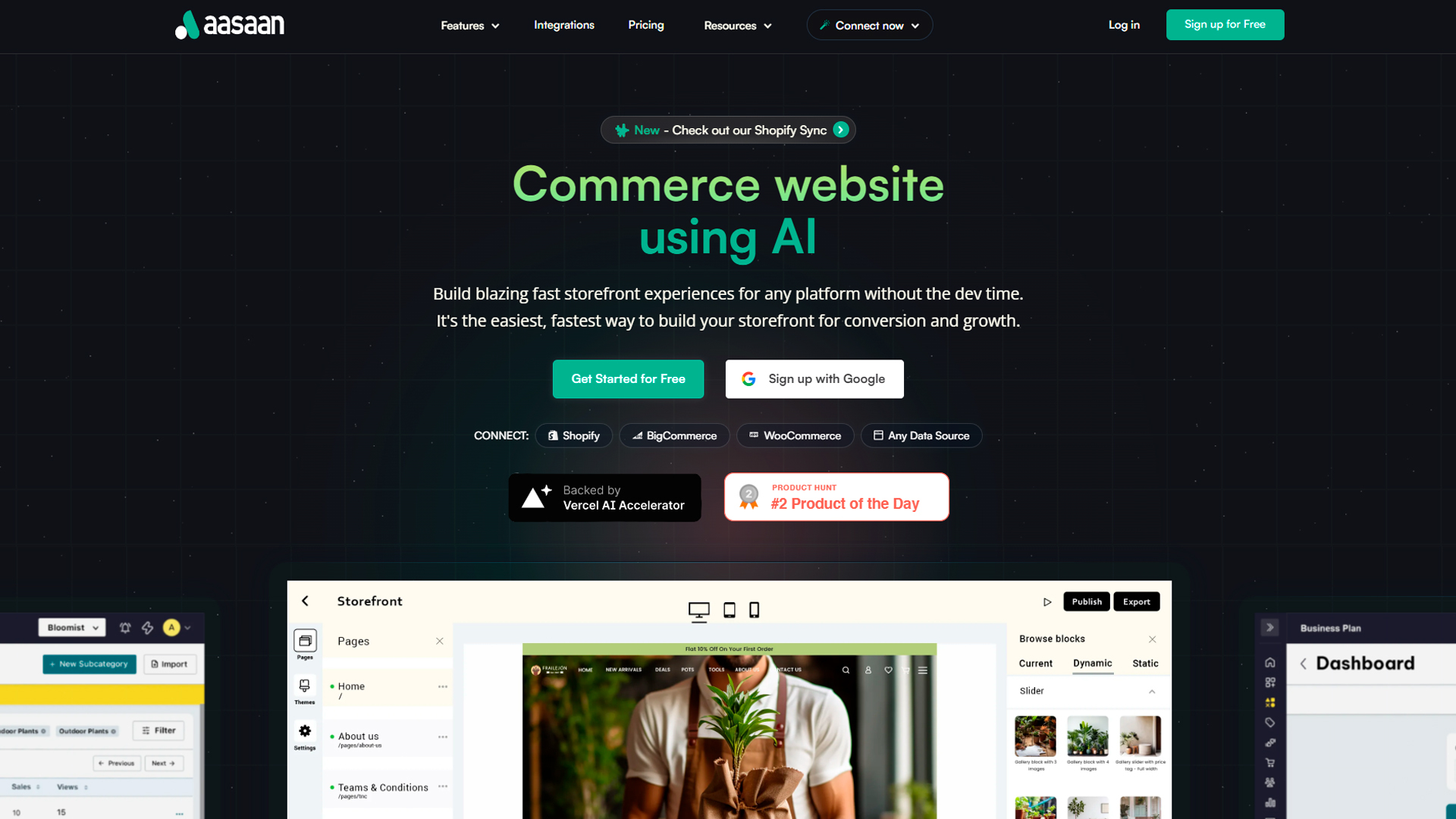
We at Aasaan App offer a robust and scalable ecommerce solution designed to cater to the needs of businesses of all sizes.
Our platform is built with an API-first approach, allowing for seamless integration with other systems. This means that you can easily connect the Aasaan App with your existing CRM, ERP, or PIM systems, ensuring a smooth flow of data across your business.
Our key features include a fully customizable front-end, allowing you to create a unique and engaging shopping experience for your customers.
Why is it suitable for B2B?
At Aasaan App, we understand the unique needs and challenges of B2B ecommerce. That’s why we’ve built our platform to be flexible and scalable, capable of supporting complex B2B processes and large volumes of transactions.
Our platform supports wholesale ecommerce, with features like wholesale pricing and bulk discounts. This makes it easy for you to manage your B2B customers and offer them the pricing and discounts they expect.
Moreover, our powerful API allows for easy integration with other B2B systems, ensuring that you can maintain a single source of truth for your data. This is crucial for B2B businesses, as it allows for accurate inventory management, order processing, and customer relationship management.
2. Adobe Commerce (Magento)
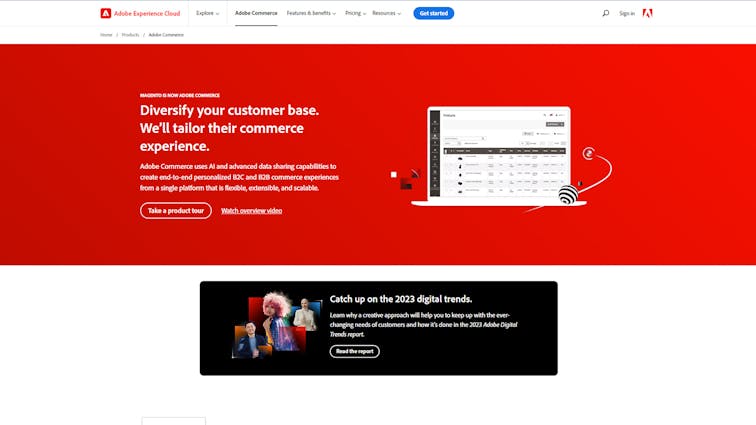
Adobe Commerce, formerly known as Magento, is a leading ecommerce platform that offers a headless approach.
It’s renowned for its flexibility, scalability, and extensive feature set. Key features include a powerful API for seamless integration with other systems, a customizable front-end for a unique user experience, and robust B2B functionality such as quote management and custom catalogs.
Why is it suitable for B2B?
Adobe Commerce is particularly well-suited for B2B businesses due to its powerful B2B features.
It supports complex pricing and discount structures, multiple buyer roles and permissions, and even allows for custom catalogs for different customer groups.
Moreover, its API-first approach makes it easy to integrate with other B2B systems like ERP or CRM, ensuring a smooth flow of data across the business.
3. Shopify Plus
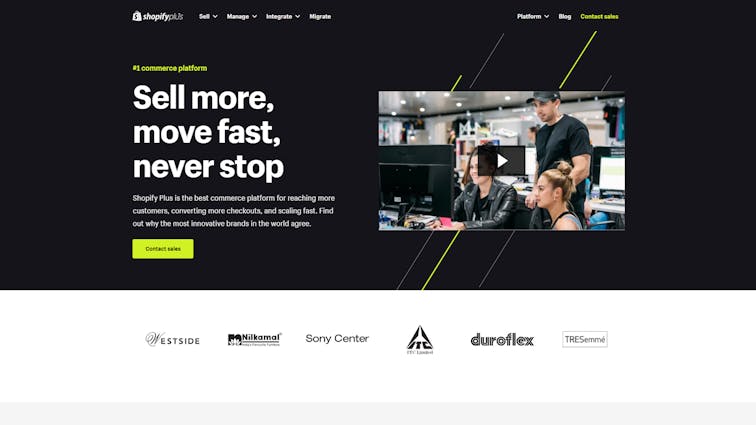
Shopify Plus is the enterprise version of the popular ecommerce platform Shopify. It offers a headless commerce solution, allowing businesses to decouple their front-end and back-end systems.
Key features include a fully customizable front-end, a powerful API for integrations, and advanced ecommerce features like automated workflows and multi-currency support.
Why is it suitable for B2B?
Shopify Plus is a great choice for B2B businesses due to its scalability, reliability, and extensive feature set.
It supports wholesale ecommerce, with features like wholesale pricing and bulk discounts. Its powerful API allows for easy integration with other B2B systems, and its customizable front-end allows businesses to create a unique, branded shopping experience for their customers.
4. BigCommerce Enterprise
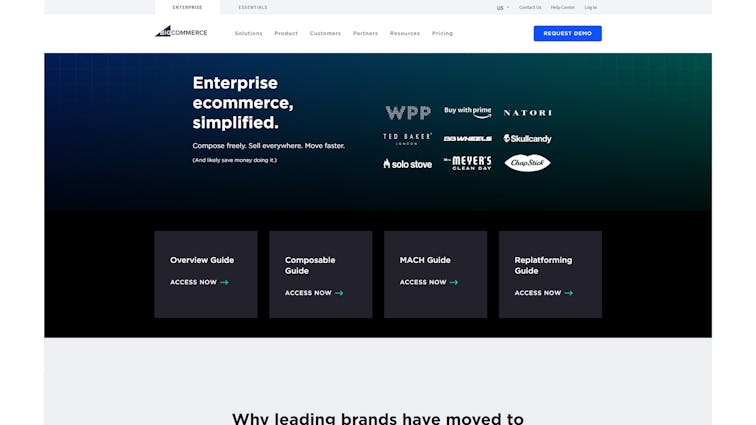
BigCommerce Enterprise is a scalable ecommerce solution designed for high-volume businesses.
It offers a headless commerce option, allowing businesses to separate their front-end and back-end systems. Key features include a customizable front-end, a robust API for integrations, and advanced ecommerce features like segmentation and personalization.
Why is it suitable for B2B?
BigCommerce Enterprise is a strong contender for B2B businesses due to its powerful ecommerce features and flexibility.
It supports B2B functionality like custom pricing and catalogs, bulk order processing, and customer segmentation. Its API-first approach allows for easy integration with other B2B systems, and its customizable front-end allows businesses to create a unique, engaging shopping experience.
5. OroCommerce
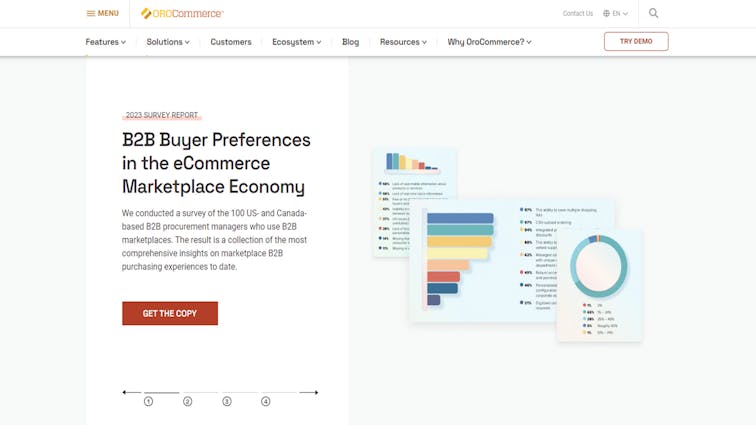
OroCommerce is a flexible B2B ecommerce platform that offers a headless architecture. It’s designed specifically for B2B ecommerce, with a range of features tailored to the needs of B2B businesses.
Key features include a powerful API for integrations, a customizable front-end, and robust B2B functionality like quote-to-order, price negotiation, and multiple catalogs.
Why is it suitable for B2B?
OroCommerce is built from the ground up for B2B ecommerce, making it a strong choice for B2B businesses.
It supports complex B2B processes like custom pricing, multiple buyer roles, and quote management. Its API-first approach allows for easy integration with other B2B systems, ensuring a smooth flow of data across the business.
6. Commercetools
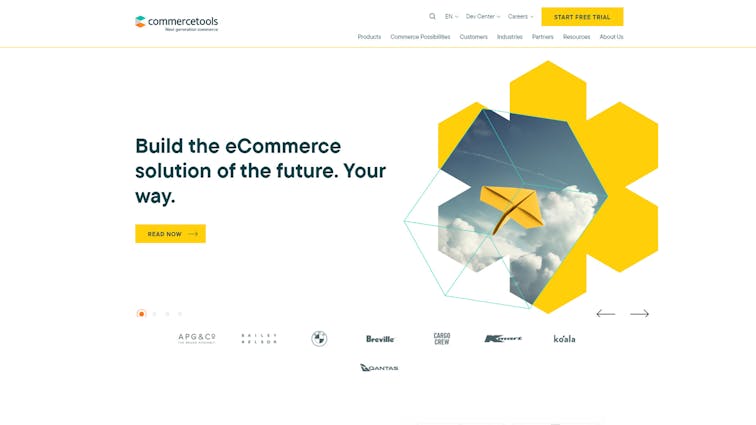
Commercetools is a modern, API-first ecommerce platform that offers a headless approach.
It’s known for its flexibility, scalability, and extensive feature set. Key features include a powerful API for seamless integration with other systems, a customizable front-end for a unique user experience, and advanced ecommerce features like multi-tenant architectures and microservices.
Why is it suitable for B2B?
Commercetools is suitable for B2B businesses due to its flexibility and powerful feature set.
It supports complex B2B processes and allows for a high degree of customization to meet the specific needs of B2B businesses.
Its API-first approach makes it easy to integrate with other B2B systems, ensuring a smooth flow of data across the business.
Questions to Consider When Choosing a Headless Ecommerce Platform
Choosing the right headless ecommerce platform for your B2B business is a crucial decision. Here are some questions to consider:
- What specific business needs do you have for a headless ecommerce platform? Identify the specific features and functionalities your business requires, such as custom pricing, inventory management, or integration capabilities.
- What is your budget for a headless ecommerce platform? Determine how much you are willing to invest in a platform, considering both upfront costs and long-term expenses.
- How scalable is the headless ecommerce platform? Assess whether the platform can accommodate your business’s growth and handle increasing traffic, orders, and data volume.
- What level of customization does the platform offer? Evaluate the platform’s flexibility in terms of design, user experience, and integrations to ensure it aligns with your brand and business requirements.
- How strong is the support and community around the platform? Research the platform’s support services, documentation, and community resources to ensure you will have access to help and guidance when needed.
- What specific features does your B2B business require in a headless ecommerce platform?
Consider your business needs and processes. Do you need advanced B2B features like quote management and custom catalogs? Or are you more focused on a customizable front-end and seamless integrations? - Does the platform have a robust API for integrations? Check if the platform offers a well-documented and extensive API that allows seamless integration with other systems, such as CRM, ERP, or PIM.
- What security measures does the platform have in place? Consider the platform’s security features, including data encryption, compliance with industry standards, and regular updates to protect customer and business data.
By considering these questions, you can make an informed decision and choose the right headless ecommerce platform that aligns with your business goals and requirements.
Want to learn more about headless?
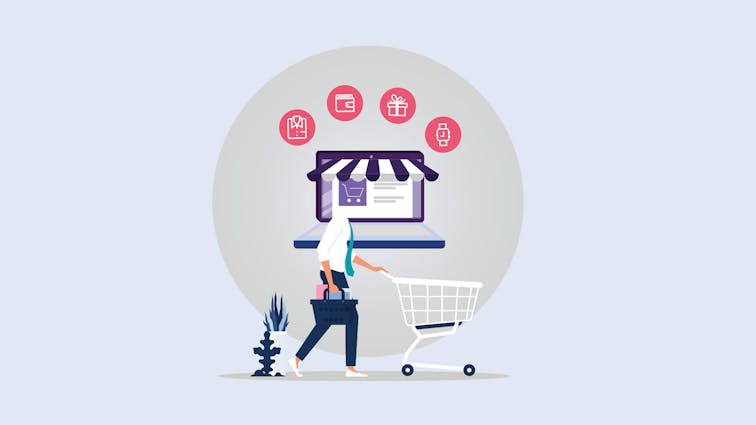
If you’re interested in discovering more about headless commerce and exploring how Aasaan can assist your organization in leveraging your B2B business, don’t hesitate to contact us and speak with one of our commerce specialists.
Take the leap and transform your e-commerce business into a force to be reckoned with. Visit: aasaan.app now to embark on your journey of success with Aasaan.
For more insight into how aasaan can fit into your workflows, go ahead and schedule a demo!
Conclusion:
In conclusion, having a headless ecommerce platform for B2B businesses allows for greater flexibility, improved scalability, an enhanced user experience, and the ability to stay ahead of the competition.
It is crucial to carefully evaluate your options and consider your specific needs before making a choice.
Aasaan, Magento Commerce, Shopify Plus, BigCommerce Enterprise, OroCommerce, and Commercetools are all great options for those looking for a platform tailored to the B2B ecosystem.
By considering the key questions outlined, you can select the perfect headless ecommerce platform that will best support the growth and success of your B2B business in the long run.
FAQ’s:
1. What is an example of a company using a headless ecommerce platform?
Companies like Nike, Coca-Cola, and Under Armour use headless ecommerce platforms to provide a seamless shopping experience across multiple channels.
2. Is headless CMS good for ecommerce?
Yes, a headless CMS is excellent for ecommerce as it allows for greater flexibility, scalability, and customization, enabling a tailored shopping experience.
3. How much does a headless ecommerce platform cost?
The cost of a headless ecommerce platform varies widely depending on the specific platform, features, and the size of your business. It’s best to contact the platform provider for a quote.
4. Are headless ecommerce platforms good for SEO?
Yes, headless ecommerce platforms can be great for SEO. They allow for faster load times, mobile optimization, and personalized content, all of which can boost SEO.



